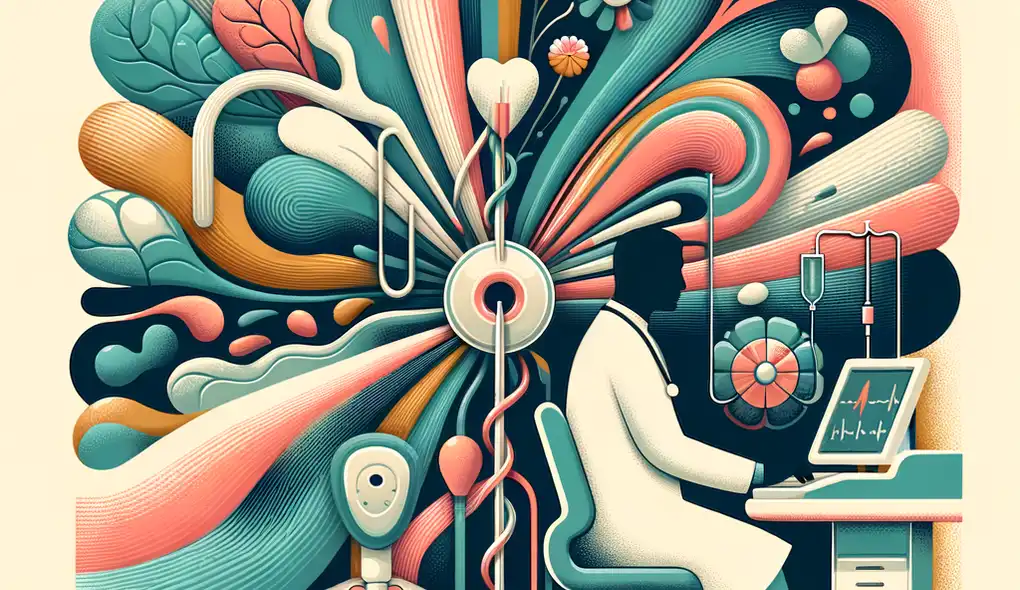How do you ensure accurate interpretation of radiologic studies and clinical information?
Interventional Radiologist Interview Questions
Sample answer to the question
To ensure accurate interpretation of radiologic studies and clinical information, I carefully review the patient's medical history and previous imaging studies. I also make sure to communicate with the referring clinicians to gather any additional relevant clinical information. During the interpretation process, I utilize various image-guided diagnostic tools and equipment, paying close attention to details and abnormalities. If necessary, I consult with other radiologists or specialists for a second opinion. Additionally, I stay updated with the latest research and advancements in the field of interventional radiology to enhance my interpretive skills.
A more solid answer
Ensuring accurate interpretation of radiologic studies and clinical information is crucial for providing optimal patient care. To achieve this, I follow a systematic approach. First, I thoroughly review the patient's medical history, including any relevant previous imaging studies and laboratory results, to gain a comprehensive understanding of their condition. I also actively engage with the referring clinicians to gather additional clinical information that may impact the interpretation. During the interpretation process, I utilize advanced image-guided diagnostic tools and equipment, such as PACS systems and 3D reconstruction software, to enhance visibility and provide precise measurements. I pay meticulous attention to details, carefully analyzing each image and comparing it to normal anatomy and known pathology. In complex cases, I collaborate with other radiologists or specialists for a second opinion to ensure accuracy. Additionally, I consistently stay updated with the latest research and advancements in the field through attending conferences, participating in continuing medical education activities, and reading relevant literature. By maintaining a strong commitment to continued education and professional development, I continuously refine my interpretive skills and incorporate the latest evidence-based practices into my work.
Why this is a more solid answer:
The solid answer expands upon the basic answer by providing more specific details and examples to demonstrate the candidate's proficiency in the required skills. It showcases their systematic approach, utilization of advanced tools, collaboration with other experts, and commitment to continued education. However, it could still benefit from including specific examples of how they have successfully ensured accurate interpretation in their previous work experiences.
An exceptional answer
Accurate interpretation of radiologic studies and clinical information requires a multifaceted approach that combines technical expertise, clinical knowledge, and strong communication skills. Throughout my career, I have developed a comprehensive strategy to ensure utmost accuracy in my interpretations. Firstly, I establish a strong foundation by meticulously reviewing the patient's medical history, including previous imaging studies, laboratory results, and surgical reports. This helps me understand the clinical context and any relevant findings. I also proactively communicate with referring clinicians, collaborating closely with them to gather additional information and clarify any ambiguities. During the interpretation process, I maximize the use of cutting-edge image-guided diagnostic tools, such as dual-energy CT and functional MRI, to improve visualization and aid in the detection of subtle abnormalities. Furthermore, I employ advanced post-processing techniques, such as multi-planar reformation and CAD software, to enhance diagnostic accuracy and improve patient outcomes. To ensure quality and accuracy, I participate in regular peer review sessions and multidisciplinary conferences, where I engage with experts from various specialties to discuss challenging cases and seek feedback. Moreover, I am an active member of professional societies and regularly contribute to research projects, aiming to advance the field of interventional radiology. Finally, I prioritize continuous learning and growth by attending national and international conferences, participating in hands-on workshops, and pursuing advanced certifications to stay at the forefront of my field. By combining technical expertise, clinical knowledge, and effective communication, I consistently deliver accurate interpretations that contribute to the best possible patient care.
Why this is an exceptional answer:
The exceptional answer goes above and beyond by providing a highly detailed and comprehensive approach to ensuring accurate interpretation of radiologic studies and clinical information. It showcases the candidate's in-depth knowledge of advanced techniques and tools, strong collaboration skills, continuous engagement in professional development, and commitment to advancing the field. The answer effectively demonstrates their expertise and suitability for the role of a Junior Interventional Radiologist.
How to prepare for this question
- 1. Familiarize yourself with the latest advancements in interventional radiology, including image-guided diagnostic tools and post-processing techniques. Stay updated on emerging research and evidence-based practices.
- 2. Practice reviewing and interpreting radiologic studies, paying attention to details and abnormalities. Develop a systematic approach to ensure accuracy.
- 3. Enhance your communication skills, both verbal and written, to effectively collaborate with referring clinicians and other healthcare professionals. Practice presenting complex findings in a clear and concise manner.
- 4. Engage in continuous learning and professional development activities, such as attending conferences, participating in workshops, and pursuing advanced certifications. This demonstrates your commitment to staying current in the field.
- 5. Seek opportunities for peer review and collaboration to receive feedback on your interpretations. Actively participate in multidisciplinary conferences to engage with experts from various specialties and enhance your diagnostic skills.
What interviewers are evaluating
- Ability to interpret radiologic studies and clinical information accurately
- Proficient use of image-guided diagnostic tools and equipment
- Strong communication skills for effective patient care and team collaboration
- Commitment to continued education and professional development
Related Interview Questions
More questions for Interventional Radiologist interviews